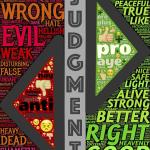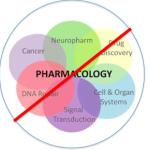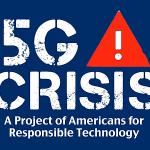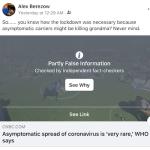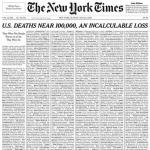The researchers made use of two datasets. C-Span provided information on the verified Twitter accounts of the members of the 116th Congress; Twitter’s interface provided the tweets.
Policy & Ethics
Most days, the world is unfair. Bad people succeed, good people fail, and those who deserve justice never get it.
The American Medical Association was two years late to the party when it issued its first statement
Everyone I know likes to think of himself or herself as pro-science and open-minded. I don't think I've ever heard anyone proudly claim to be anti-science and closed-minded.
Peer review, especially peer review of chemical safety/risk assessments, is under assault. Despite the fact that government agencies, industries, universities, NGOs and consulting groups recognize the added credibility that peer review bring
Well, this is certainly interesting. An article from CNBC that I posted on my personal Facebook page has been flagged by Facebook fact-checkers as containing "partly false information."
In medicine’s recent past, Dr. Welby could be counted on to dispense sage fatherly advice. Fast forward a decade or two, and Dr. Grey often lays out the options while addressing their and their patient’s angst.
A few weeks ago, we received an email from Dutch journalist Jannes van Roermund, who works for the newspaper De Telegraaf.
We like to complain about our healthcare system. Mostly, the complaints are directed at the outrageous costs and the slippery, backstabbing nature of insurance companies. But rarely do we complain about the quality of our healthcare.
Thanks to the COVID-19 lockdown, pornography use is up. But that's not what is meant by the term "pandemic porn."
